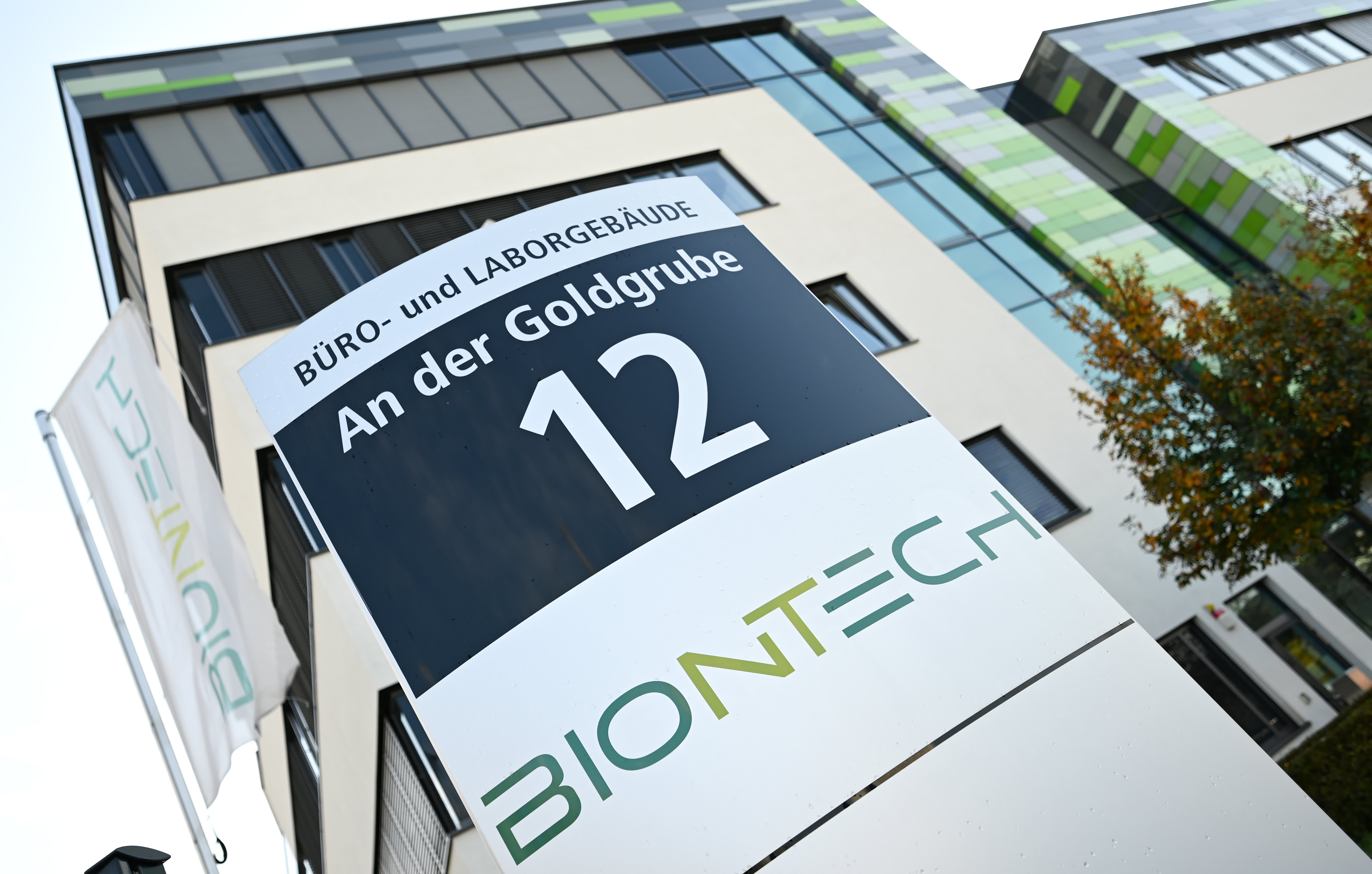What you need to know about BioNTech — the European company behind Pfizer’s Covid-19 vaccine

The logo of the biotechnology company “BioNTech” in front of the company headquarters.
Arne Dedert | picture alliance via Getty Images
LONDON — Before 2020, Germany’s BioNTech was a relatively little-known biotechnology company. That all changed when Covid-19 arrived.
On Monday, U.S. drug maker Pfizer announced an early analysis of its coronavirus vaccine — developed in partnership with BioNTech — was more than 90% effective in preventing Covid-19 among those without evidence of prior infection.
The news was hailed as a significant milestone in the race to deliver a vaccine that can help bring an end to the coronavirus pandemic. White House coronavirus advisor Dr. Anthony Fauci had previously said a vaccine that is 50% or 60% effective would be acceptable.
There are still huge challenges ahead for the development of a safe and effective vaccine, but as hopes rise worldwide, CNBC takes a look at BioNTech’s history.
Power couple
BioNTech (pronounced bye-on-tech) was founded in the city of Mainz in 2008 by husband and wife duo Ugur Sahin and Ozlem Tureci.
Both Sahin and Tureci are the children of Turkish immigrants. Sahin’s father worked at a Ford factory in Cologne while Tureci’s was a doctor. Sahin heads up BioNTech as its CEO while Tureci is the firm’s chief medical officer.
Their entrepreneurial journey began in 2001 when they set up Ganymed Pharmaceuticals, another German biotech firm focused on developing immunotherapeutic cancer drugs. That company was acquired by Japan’s Astellas for up to 1.3 billion euros ($1.5 billion) in late 2016.
At the time, Sahin and Tureci were already working on BioNTech, which would look to develop a broader range of cancer immunotherapies. Their research centered on messenger RNA (mRNA) molecules, which transport instructions to the part of the cell that creates proteins.
Nasdaq-listed BioNTech has seen its shares surge over 230% since the start of the year, lifting its market value close to $27 billion. Another biotech firm in the mRNA space, Moderna, has seen its stock skyrocket nearly 290% in that same period. According to the weekly Welt am Sonntag newspaper, Sahinby and Tureci now rank among the 100 richest Germans.
Pfizer partnership
In January, Sahin instructed his company to devote its resources to tackling the novel coronavirus that had emerged in China.
BioNTech, which had already been working with Pfizer on a flu vaccine, then agreed in March to a tie-up with the American pharma giant that would see them co-develop and distribute a potential vaccine for Covid-19.
“We are a next-generation immunotherapy company,” Sahin told CNBC’s “Power Lunch” on Tuesday. “The technology behind this vaccine, the messenger RNA technology, and the vaccine candidates have been developed in Germany.”
Sahin went on to explain that BioNTech “took care of the manufacturing of the batches for the clinical trial.” BioNTech also specializes in T-cell, a key part of the immune system, and “investigated the T-cell immune responses for this vaccine,” according to its chief.
Pfizer took care of clinical trials in the U.S. while BioNTech conducted its own trials in Germany, Sahin said, adding that Pfizer was responsible for executing the global late-stage trial that led to the 90% efficacy revelation on Monday.
Dr. Albert Bourla, the CEO of Pfizer, called that development “a great day for science and humanity.” Sahin agrees: “It was a wonderful moment because we didn’t expect this high efficacy rate.”
Those results are subject to an independent review, but provide some promise amid the mammoth global effort to develop an effective vaccine. Still, distribution is likely to prove a challenge: Pfizer’s vaccine requires a storage temperature of minus 94 degrees Fahrenheit and cannot be removed more than four times.




